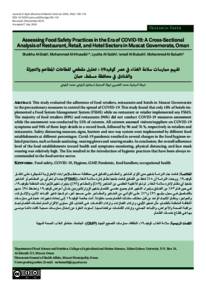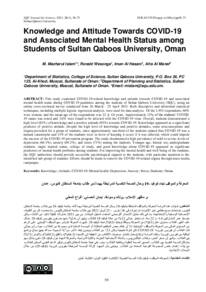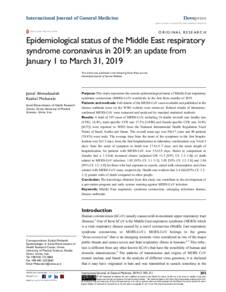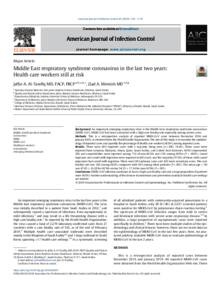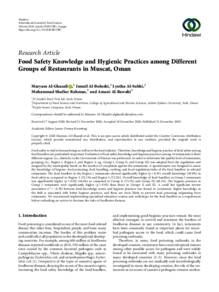وثيقة
Assessing food safety practices in the era of COVID-19 : a cross-sectional analysis of restaurant, retail, and hotel sectors in Muscat Governorate, Oman.
المعرف
DOI: 10.53541/jams.vol29iss2pp100-118
المصدر
Journal of Agricultural and Marine Sciences (JAMS), v. 29, no. 2, p.100-118.
المساهمون
Al-Khusaibi, Mohammed., مؤلف
Al-Subhiyah, Lyutha., مؤلف
Al-Bulushi, Ismail., مؤلف
Al-Bulushi, Mohammed., مؤلف
عناوين أخرى
تقييم ممارسات سلامة الغذاء في عُصر كوفيد-19 : تحليل مقطعي لقطاعات المطاعم والتجزئة والفنادق في محافظة مسقط، عُمان.
الدولة
Oman
مكان النشر
Muscat
الناشر
College of Agricultural and Marine Sciences, Sultan Qaboos University.
ميلادي
2024-09-17
اللغة
الأنجليزية
الملخص الإنجليزي
This study evaluated the adherence of food retailers, restaurants, and hotels in Muscat Governorate to the precautionary measures to control the spread of COVID-19. This study found that only 18% of hotels implemented a Food System Management System (FSMS), while no restaurant or retailer implemented any FSMS. The majority of food retailers (89%) and restaurants (96%) did not conduct COVID-19 measures assessment, while the assessment was conducted by 53% of caterers. All caterers assessed visitors/suppliers on COVID-19 symptoms and 94% of them kept details in a record book, followed by 96% and 76%, respectively, in retailers and restaurants. Safety distancing measures, signs, barriers, and one-way systems were implemented by different food establishments at varying percentages. The COVID-19 pandemic resulted in several changes in food hygiene-related practices, such as hand sanitizing, wearing gloves, and wearing masks. In conclusion, the overall adherence level of food establishments toward health and symptoms monitoring, physical distancing, and face mask wearing was relatively high. The era resulted in the introduction of hygienic practices that have been always recommended in the food service sector.
ISSN
Online: 2410-1079
Print: 2410-1060
الملخص العربي
قامت هذه الدراسة بتقييم مدى التزام المتاجر والمطاعم والفنادق في محافظة مسقط بالإجراءات الاحترازية للسيطرة على انتشار كوفيد-19. ووجدت الدراسة أن 18٪ فقط من الفنادق قامت بتنفيذ نظام إدارة سلامة الغذاء (FSMS) بينما لم تقم أي من المطاعم أو المتاجر بتنفيذ أي نظام لإدارة سلامة الغذاء. لم تقم الأغلبية العظمى من المتاجر (89٪) والمطاعم (96٪) بإجراء تقييم للإجراءات المتعلقة بكوفيد-19، في حين قام 53٪ من الفنادق بإجراء التقييم. قام جميع مقدمي الطعام بتقييم الزوار/الموردين بشأن أعراض كوفيد-19 واحتفظ 94٪ منهم بالتفاصيل في سجل، يليهم 96٪ و76٪ على التوالي من المتاجر والمطاعم. على صعيد آخر، تم تنفيذ تدابير التباعد الآمن، والإشارات، والحواجز، ونظام الاتجاه الواحد من قبل مختلف منشآت الطعام بنسب متفاوتة. أدت جائحة كوفيد-19 إلى إحداث تغييرات عديدة في ممارسات النظافة المتعلقة بالطعام، مثل تعقيم الأيدي، وارتداء القفازات، وارتداء الكمامات. في الختام، كان مستوى الالتزام العام لمنشآت الطعام تجاه مراقبة الصحة والأعراض، والتباعد الجسدي، وارتداء الكمامات مرتفعًا نسبيًا. أسفرت الفترة عن إدخال ممارسات صحية كانت دائمًا موصى بها في قطاع خدمات الطعام.
قالب العنصر
مقالات الدوريات

